
Born
February 08th, 1941
Passed Away
October 10th, 2011
Popularly Known as
Jagjit Singh (Galzal Samarat)
Occupation
Composer, Singer, Music Director, Activist, Entrepreneur
Religion
Sikh
Caste
-
Native
Dalla (Punjab)
Country
India
CHITHHI NA KOI SANDESH
JAANE WOH KAUN SA DESH JAHA TUM CHALE GAYE
CHITHHI NA KOYI SANDESH
JAANE WOH KAUN SA DESH JAHA TUM CHALE GAYE
CHITHHI NA KOYI SANDESH
JAANE WOH KAUN SA DESH JAHA TUM CHALE GAYE
JAHA TUM CHALE GAYE
IS DIL PE LAGA KE THHES JAANE WOH KAUN SA DESH
JAHA TUM CHALE GAYE...
EK AAH BHARI HOGI HAMNE NA SUNI HOGI
JAATE JAATE TUMNE AWAAZ TO DI HOGI
HAR WAQT YEHI HAI GHAM, US WAQT KAHA THE HUM
KAHA TUM CHALE GAYE
CHITHHI NA KOI SANDESH JAANE WOH KAUN SA DESH
JAHA TUM CHALE GAYE JAHA TUM CHALE GAYE
IS DIL PE LAGA KE THHES JAANE WOH KAUN SA DESH
JAHA TUM CHALE GAYE...
HAR CHEEZ PE ASHKON SE LIKHA HAI TUMHAARA NAAM
YE RASTE GHAR GALIYAAN TUMHE KAR NA SAKE SALAAM
HAI DIL MEIN REH GAYI BAAT, JALDI SE CHHUDA KAR HAATH
KAHA TUM CHALE GAYE
CHITHHI NA KOI SANDESH JAANE WOH KAUN SA DESH
JAHA TUM CHALE GAYE JAHA TUM CHALE GAYE
IS DIL PE LAGA KE THHES JAANE WOH KAUN SA DESH
JAHAN TUM CHALE GAYE...
AB YAADON KE KAANTE IS DIL MEIN CHUBHTE HAIN
NA DARD THHAHERTA HAI NA AANSON RUKTE HAIN
TUMHE DHHUNDHH RAHA HAI PYAAR, HUM KAISE KAREIN IQRAAR
KAHA TUM CHALE GAYE
CHITHHI NA KOI SANDESH JAANE WOH KAUN SA DESH
JAHA TUM CHALE GAYE JAHA TUM CHALE GAYE
IS DIL PE LAGA KE THHES JAANE WOH KAUN SA DESH
JAHAN TUM CHALE GAYE...
HO KAHAN TUM CHALE GAYE
Shradhanjali By
Shradhanjali.com
Biography of Jagjit Singh Amar Singh Dhiman
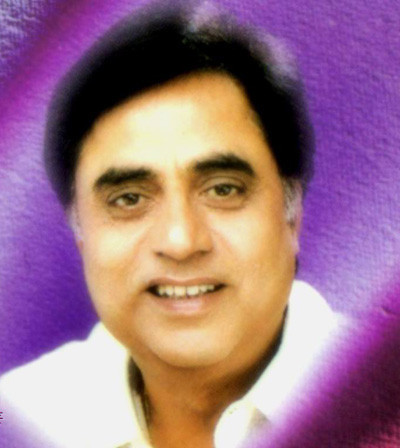
Jagjit Singh was an Indian ghazal singer, composer, music director, activiist and entrepreneur. Known as "The Ghazal King" he gained acclaim together with his wife, another renowned Indian ghazal singer Chitra Singh. Popularly known as n the 1970s and 1980s, as the first ever successful duo act (husband-wife) in the history of recorded Indian music. Together, they are considered to be the pioneers of modern ghazal singing and regarded as the most successful recording artistes outside the realm of Indian film music. He has sung in Punjabi, Hindi, Urdu, Bengali, Gujarati, Sindhi and Nepali languages. He was awarded India's third highest civilian honour, the Padma Bhushan, in 2003.
Singh is credited for the revival and popularity of ghazal, an Indian classical art form, by simplifying the complex form of ghazals in to a simpler form of ghazals by amalgamating ghazal and geet. His music became popular in mass media through films such as Prem Geet (1981), Arth and Saath Saath (1982), and TV serials Mirza Ghalib (1988) and Kahkashan (1991). Jagjit Singh is considered to be the most popular ghazal singer and composer of all time, in terms of commercial success. With a career spanning over five decades and a repertoire comprising 80 albums the range and breadth of his work has been regarded as genre-defining. He is the only composer and singer to have composed and recorded songs written by Prime Minister - Atal Behari Vajpayee, also a critically acclaimed poet - in two albums, Nayi Disha (1999) and Samvedna (2002).
Jagjit Singh was the first Indian composer, and together with his wife Chitra Singh the first recording artist in the history of Indian music to use digital multi-track recording for their (India's first digitally recorded) album, Beyond Time (1987). He is regarded as one of India's most influential artistes. Together with sitar player Ravi Shankar and other leading figures of Indian classical music and literature, Singh had voiced his concerns over politicisation of arts and culture in India and lack of support experienced by the practitioners of India's traditional art forms, particularly folk artists and musicians. He had lent active support to several philanthropic endeavors such as the library at St. Mary's School, Mumbai, Bombay Hospital, CRY, Save the Children and ALMA.
Early life and career
Jagjit Singh was born in Sri Ganganagar, Rajasthan to Amar Singh Dhiman, a government employee, a native of Dalla village in Punjab and his mother, Bachan Kaur from Ottallan village, Samrala. He had four sisters and two brothers and he was known as Jeet by his family. He was raised as a Sikh by religion. He went to Khalsa High School in Sri Ganganagar and then studied science after matriculation at Government College, Sri Ganganagar and went onto graduate in Arts at DAV College, Jalandhar. He is a post-graduate in history from Kurukshetra University in Haryana. Although his late father always wanted him to pursue IAS as a career, he took immense pride in his son`s achievements in the world of music today.
His association with music goes back to his childhood. He learnt music under Pandit Chaganlal Sharma for two years in Ganganagar, and later devoted six years to learning Khayal, Thumri and Dhrupad forms of Indian Classical Music from Ustad Jamaal Khan of the Sainia Gharana school. Popularly known as "Ghazal King", Singh gained acclaim together with his wife, singer Chitra Singh. Chitra stopped giving public performances after their only son, Vivek, died in a road accident in 1990. But Singh continued to sing, singing with equal ease in Punjabi, Hindi, Urdu, Gujrati, Sindhi and Nepali languages. He was awarded the Padma Bhushan in 2003.
The Vice-Chancellor of Panjab University and Kurukshetra University, Late Professor Suraj Bhan encouraged his interest in music. He arrived in Mumbai in 1965 in search of better opportunities for being a musician and singer. His early struggle in the music industry, though not too harsh by his own account, still had its share of trials and tribulations. He lived as a paying guest and his earlier assignments were singing advertisement jingles. Singh was first offered to sing in a Gujarati film, Dharati Na Chhoru produced by Suresh Amin.
Fame
During 1970s, the art of ghazal singing was dominated by well-established names like Noor Jehan, Malika Pukhraj, Begum Akhtar, Talat Mahmood and Mehdi Hassan. However, Singh was able to make his mark and carve out a niche for himself. In 1976, his album The Unforgetables (On HMV LP Records) hit music stores. Essentially a ghazal album, its emphasis on melody and Jagjit's fresh voice was a departure from the prevalent style of ghazal rendition, which was heavily based on classical and semi-classical Indian music. Skeptics had their own reservations; purists scorned it, but it was widely successful among listeners and the album set new sales records.
In 1967, Jagjit met Chitra, also a singer. After a two year courtship they got married in December 1969. They epitomize the first successful husband-wife singing team. Jagjit and Chitra Singh have made immense contributions to ghazal music and the Indian music industry in general.
Successful releases of the duo include Ecstasies, A Sound Affair and Passions. While these albums were breezy, Beyond Time released in the opening years of 1990s was an experimentation with sounds.
Around this time the duo was struck by grief, when their only son, Vivek (21), died in a road accident on 28 July 1990. Their son was returning late night to A Road, churchgate residence .A few hours earlier,someone had crashed into the lampost and darkened the street and a repair truck came to try to repair it. Vivek accidently drove into the stationery truck and was killed. Their subsequent album Someone Somewhere was the last album with ghazals sung by both. After that Chitra Singh quit singing.. Jagjit Singh would often singh "Miti da bawa", which was originally sung by Chitra Singh in a punjabi film, which relates to his own story of losing a loved one at a young age.
Jagjit Singh's later albums, including Hope, In Search, Insight, Mirage, Visions, Kahkashan (meaning "Galaxy"), Love Is Blind, Chirag (meaning "Lamp"/"Flame") also achieved success. Sajda (an Urdu word meaning "prostration") had ghazals sung by Jagjit and Lata Mangeshkar. The combined successes of his many albums made him the number one ghazal singer in India. The audience wanted more and Jagjit Singh obliged with his Punjabi albums. His ghazals use poetry by renowned poets including Mirza Ghalib, Firaq Gorakhpuri, Qateel Shifai, Shahid Kabir, Ameer Meenai, Kafeel Aazer, Sudarshan Faakir and Nida Fazli, and contemporary writers like Zaka Siddiqi, Nazir Bakri, Faiz Ratlami and Rajesh Reddy.
Singh also sang (as playback singer) for various songs in Bollywood films including Arth, Saath Saath, and Premgeet (all from 1980s). These scores remain popular even today. In fact, all the songs of film Premgeet were composed by Jagjit. His compositions for the TV serial Mirza Ghalib (based on the life of the poet Mirza Ghalib), remain extremely popular among ghazal aficionados.
Compared to his earlier ghazals (sung during 70s and 80s) his later ghazals have acquired a more soulful and poignant demeanour, as in albums such as Marasim, Face To Face, Aaeena, Cry For Cry. His ghazals have been used in more recent Bollywood films like Dushman, Sarfarosh, Tum Bin and Tarkeeb.
Most of the earlier albums of Jagjit Singh had English titles. Later, these had Urdu names like Sahar (meaning "Dawn"/"Morning"), Muntazir (meaning "In waiting"), Marasim (meaning "Relation"/"Relationship"/"Affinity" ), and Soz (meaning "Pathos").
Besides ghazals, Jagjit Singh has also sung bhajans and Gurbani (Hindu and Sikh devotional hymns respectively). Albums such as Maa, Hare Krishna, Hey Ram...Hey Ram, Ichhabal and also Man Jeetai Jagjeet in Punjabi, put him in the league of Bhajan singers such as Mukesh, Hari Om Sharan, Yesudas, Anup Jalota and Purushottam Das Jalota. The soothing effect that Jagjit's voice has on frayed nerves, prompted psychiatrists in metros (as large cities in India are called) to prescribe them as stress relievers.
Jagjit Singh's contribution in promulgating punjabi language and its poetry through singing its traditional folks, such as tappe and countryside songs, was extremely important and these songs were made exteremely popular in both East and West Punjab. His songs such as "Sare Pind ch puawde pae", "dhai din na jawani", "chadia di joon buri" are listened by both the punjabi and non-punjabi speaking audience. His another contribution is in bringing the beautiful poetry of Shiv Kumar Batalvi to masses through his album "Birha Tu Sultan" and would remain his magnum opus for the punjabi diaspora. He would sing such songs with the right note and enough emotional touch in it and put across the wording in such a manner as if the poet himself is singing it. His melodious voice and Shiv Kumar Batalavi's poetry would just rightly fit in. "Mae ni Mae", "Rog ban ke reh giya hai", "Yaariyan Raab Karke", "Eh Mera Geet Kisi Ni Gana" are few of the songs from his album, which will forever remain popular and will become part of folk singing.
On 10 May 2007, in a joint session held in the historic Central Hall of India's Parliament (Sansad Bhawan), Jagjit Singh rendered the last Moghul Emperor, Bahadur Shah Zafar's famous ghazal "Lagta nahin hai dil mera" to commemorate the 150th anniversary of India's First War of Independence (1857). President A P J Abdul Kalam, Prime Minister Manmohan Singh, Vice-President Bhairon Singh Shekhawat, Lok Sabha Speaker Somnath Chatterjee, Congress President Sonia Gandhi and dignitaries including former Prime Ministers, Members of Parliament, Foreign Ambassadors and High Commissioners were in attendance.
Death
Jagjit Singh underwent surgery after he suffered a brain hemorrhage. Doctors at the hospital performed an emergency surgery on Singh. Dr Ajit Menon, a cardiologist, Lilavati Hospital, said, "He suffered a brain hemorrhage and underwent a surgery to remove clots in his brain. His condition is critical". The doctors continued to monitor him in the intensive care unit. He was breathing with the aid of a ventilator. Singh had a history of heart ailments. In January 1998, he suffered a heart attack, which led him to quit smoking. In October 2007, he was hospitalised following blood circulation problems.
Before this illness, his last major concert was held on 16 September 2011 in Nehru Science Centre, Mumbai. His last concert was held on 20 September 2011 in The Indian Public School, Dehradun. He died on 10 October 2011 at the age of 70 in Mumbai at Lilavati hospital.
Family Tree of Jagjit Singh Amar Singh Dhiman


Bachan Kaur

Amar Singh
Post a tribute & share memories
Fond Memories & Remembrance
Related Profiles
Post Condolences



 Profile Home
Profile Home Biography
Biography Family
Tree
Family
Tree Photo
Album
Photo
Album Video
Video_thumb.jpg)
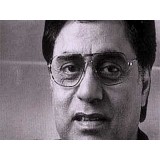
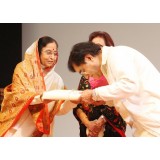
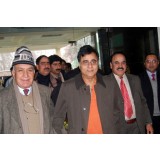
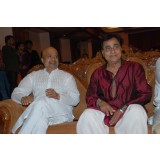
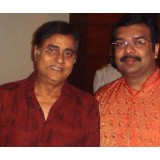
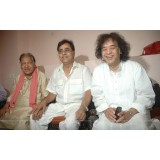
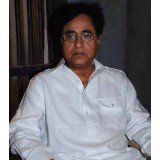
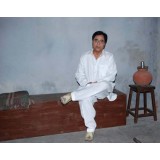
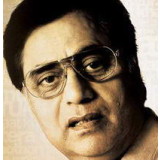
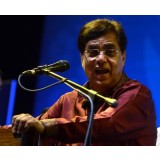

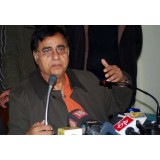
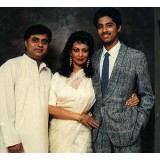
_thumb.jpg)
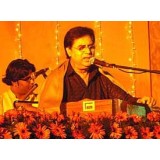
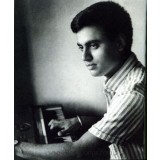
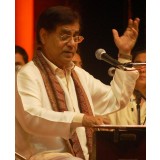
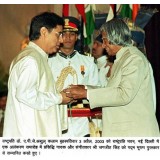
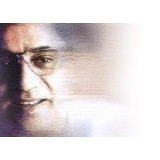
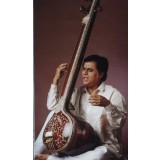
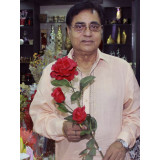
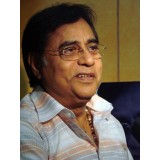
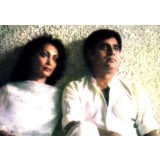
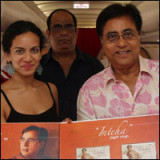
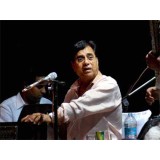
_thumb.jpg)
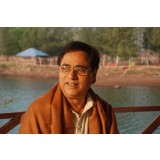
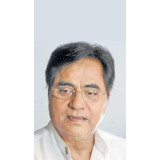
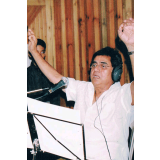
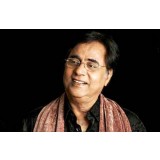
_thumb.jpeg)
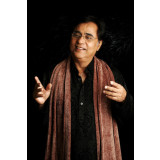
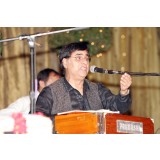
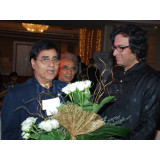
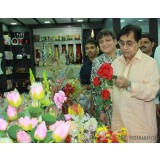
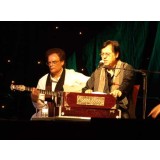
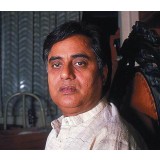
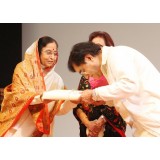
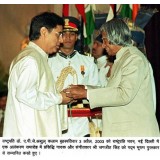
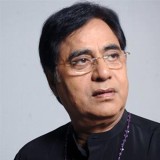
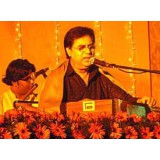
.jpg)



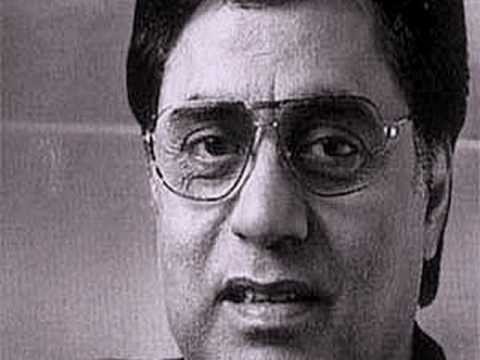
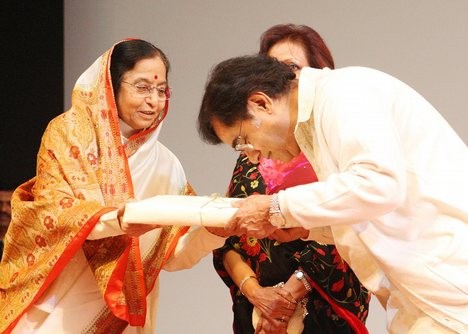
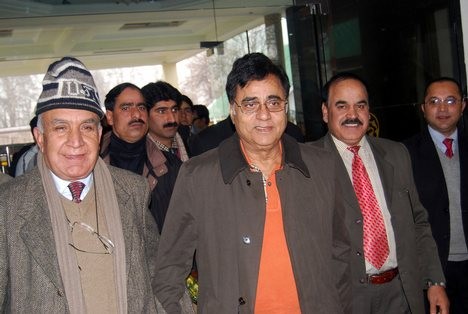
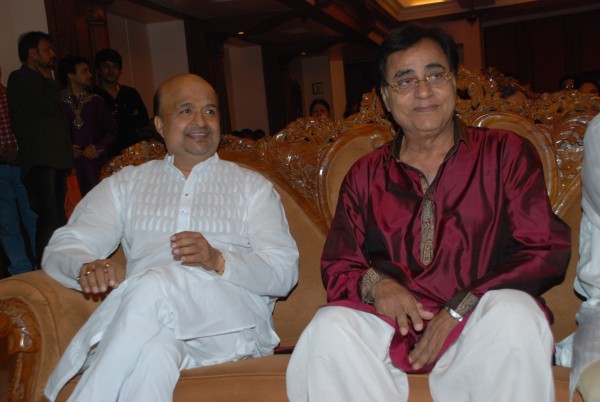
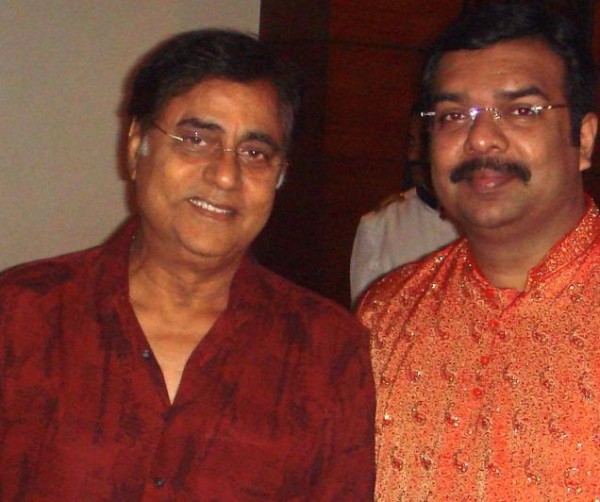
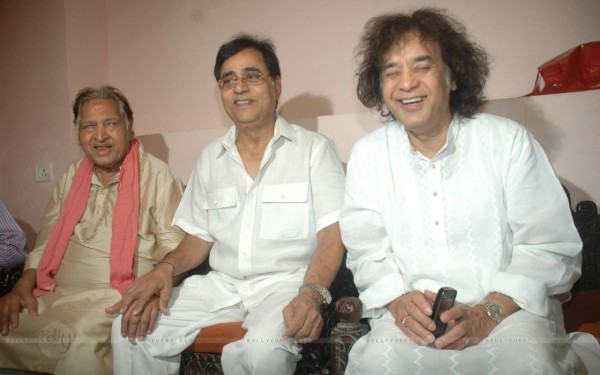
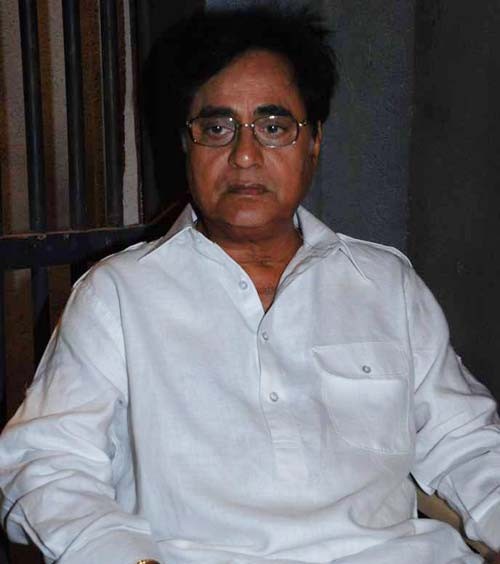
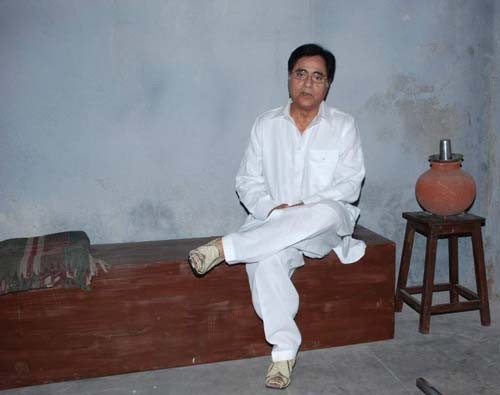
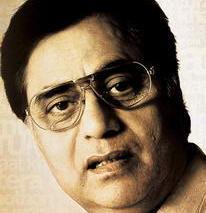
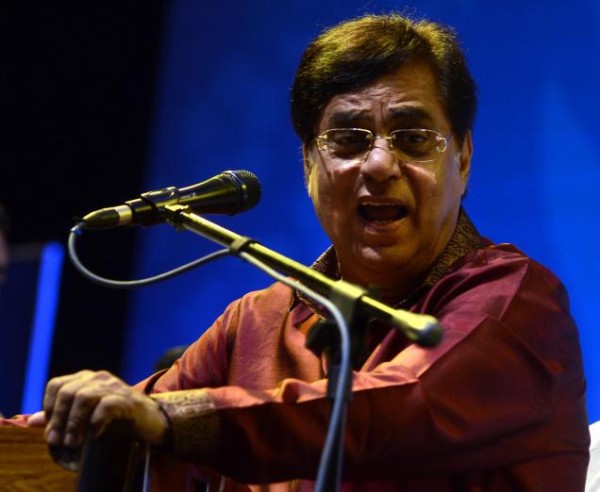
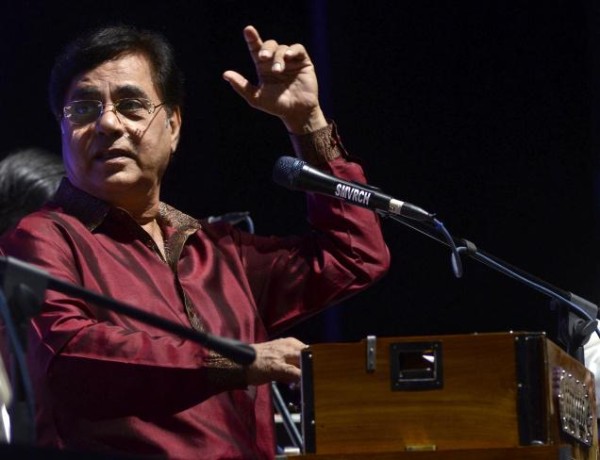
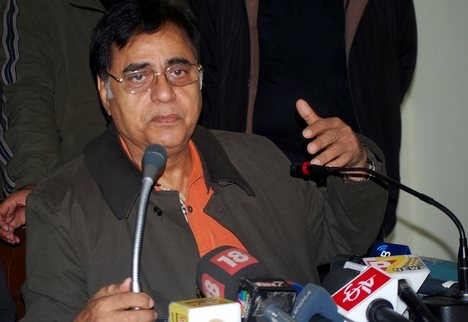
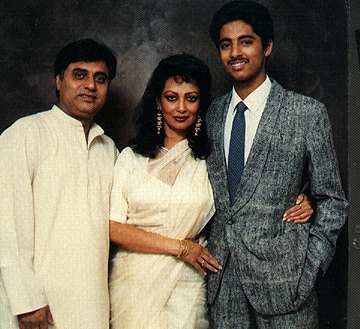
.jpg)
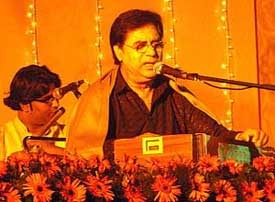
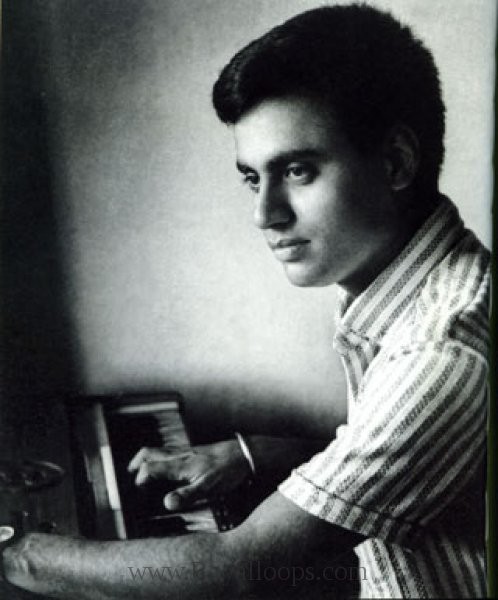
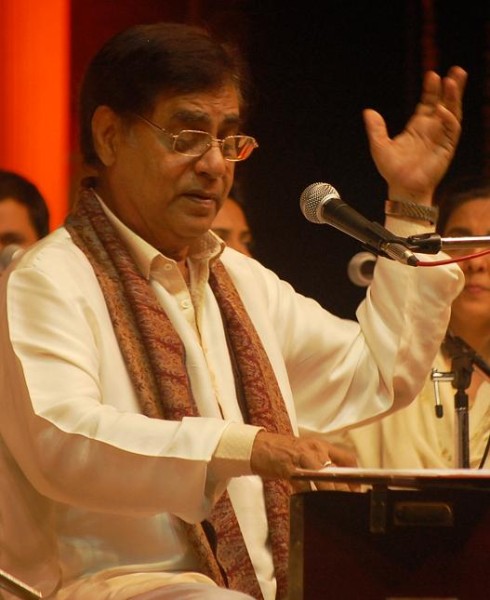
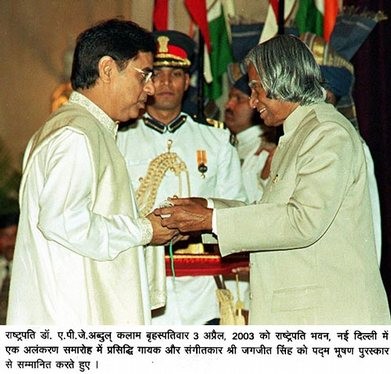
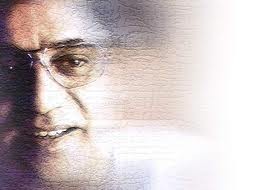
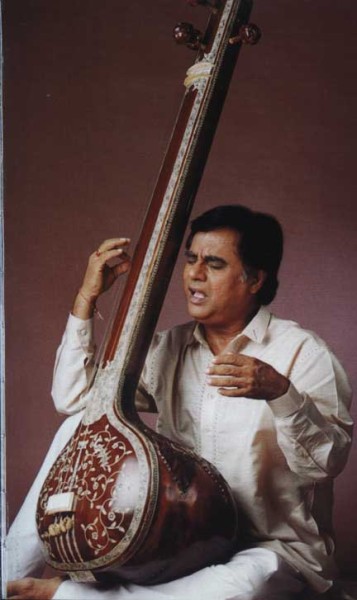
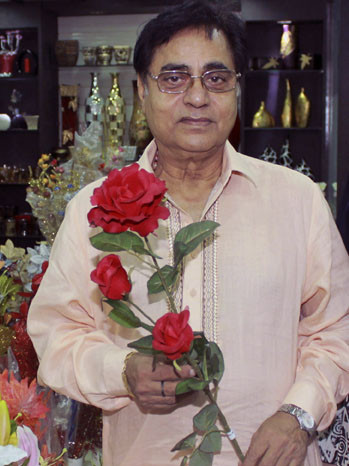
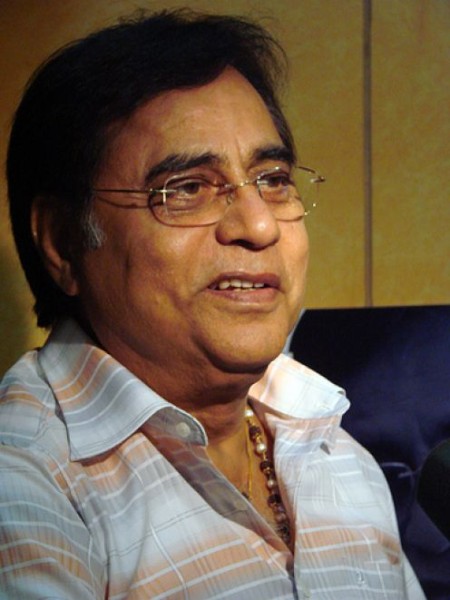
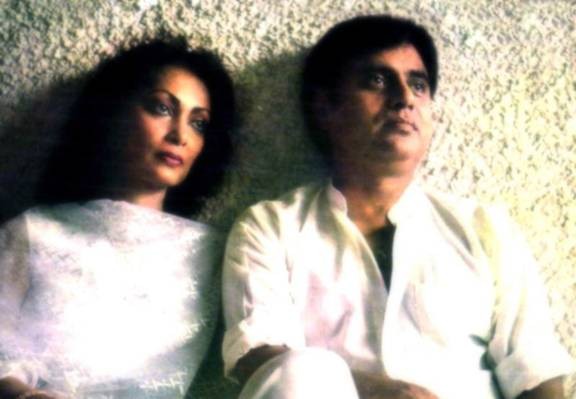
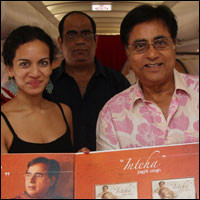
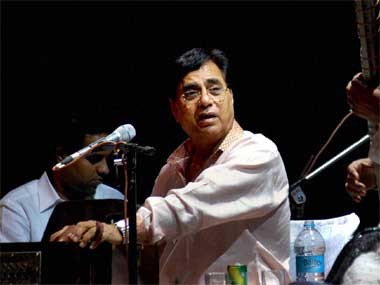
.jpg)
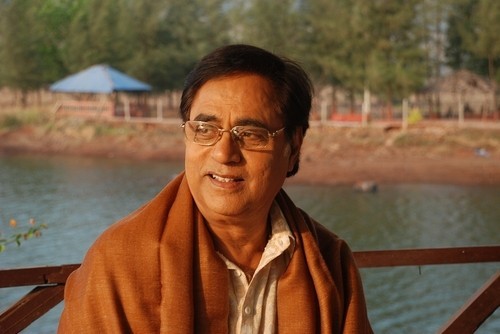
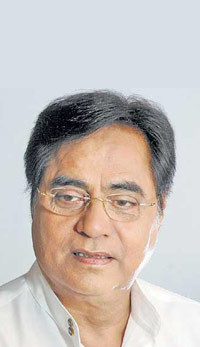
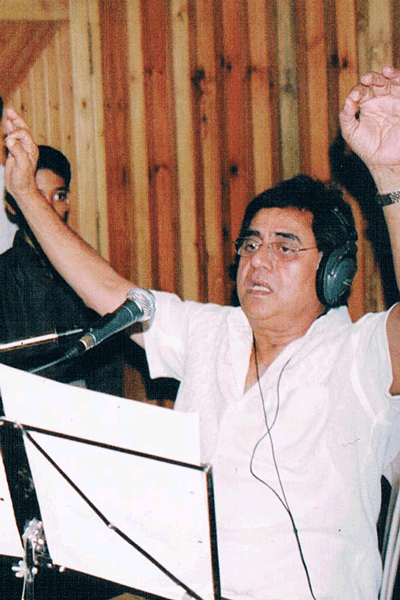
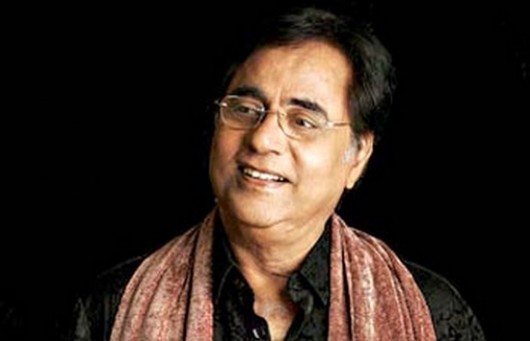
.jpeg)

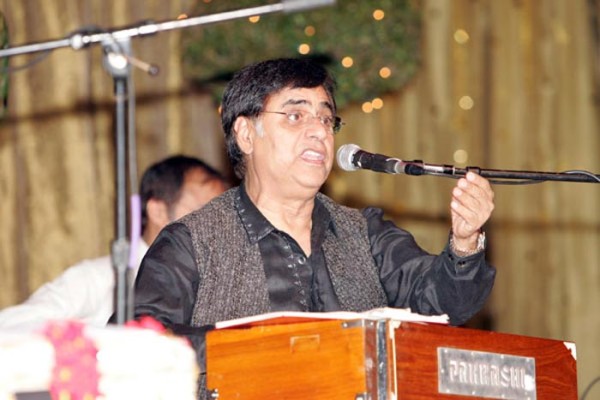
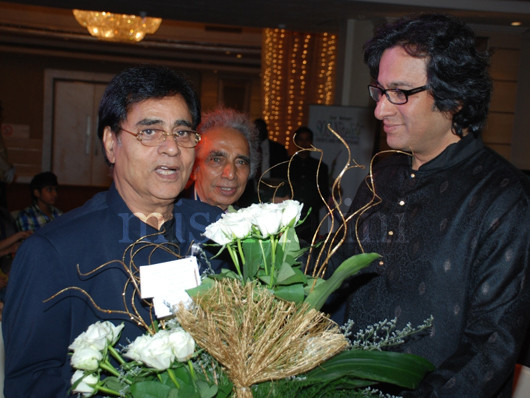
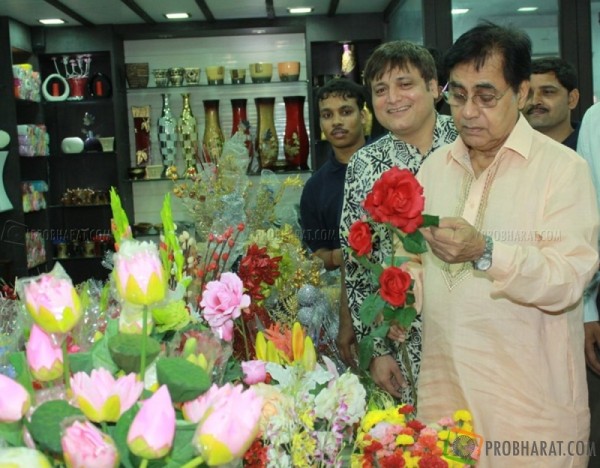
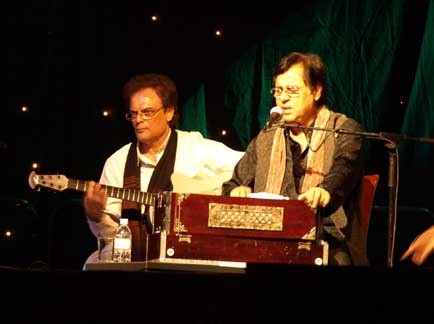
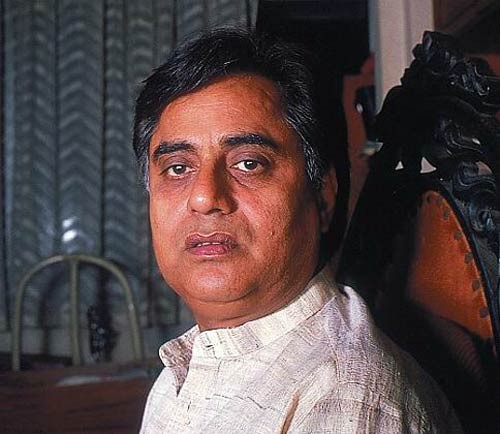
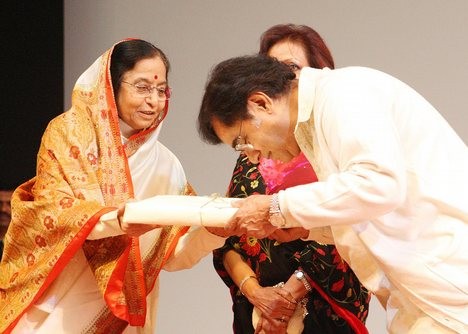
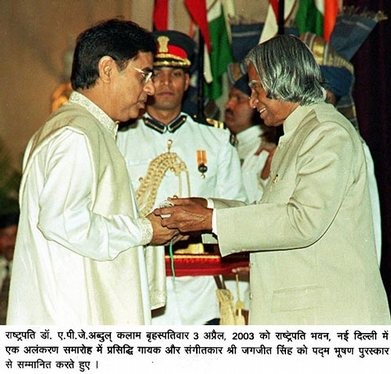
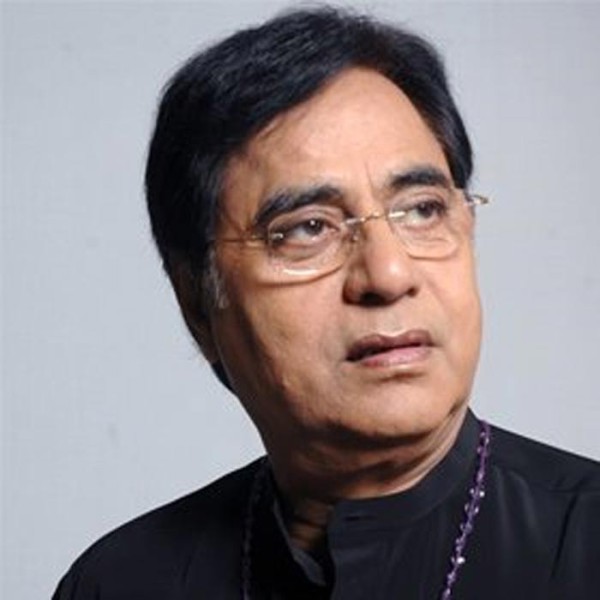
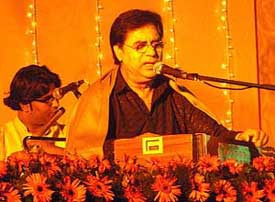
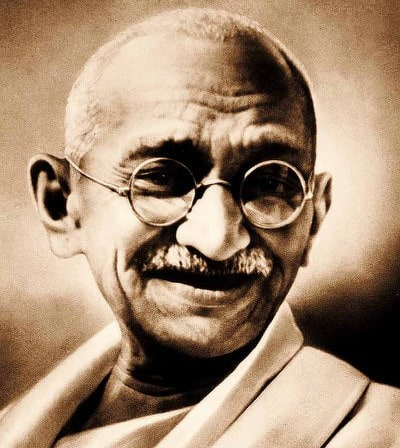
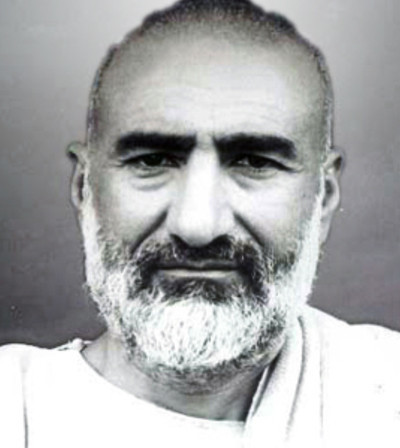
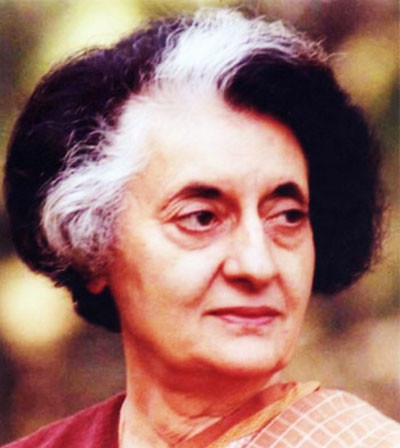
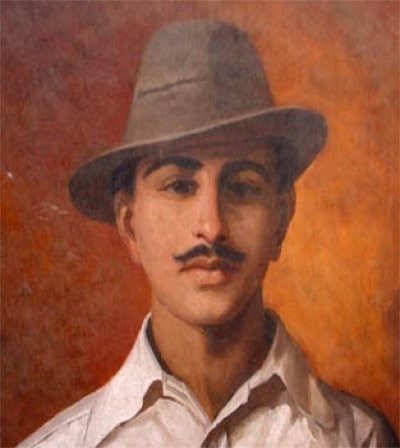
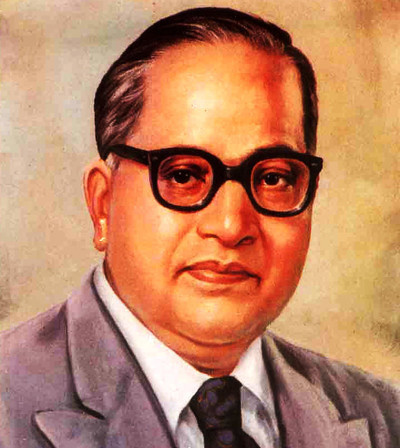
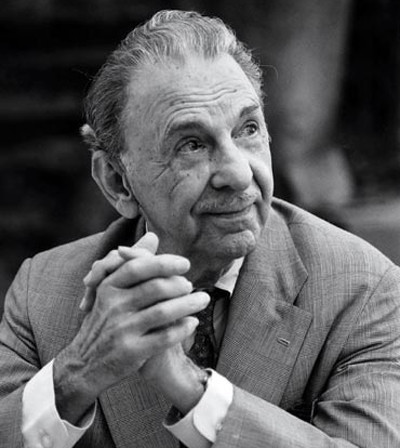

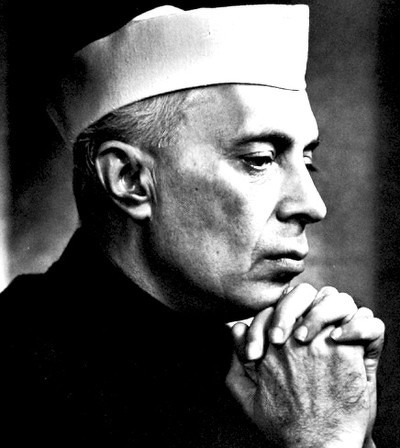
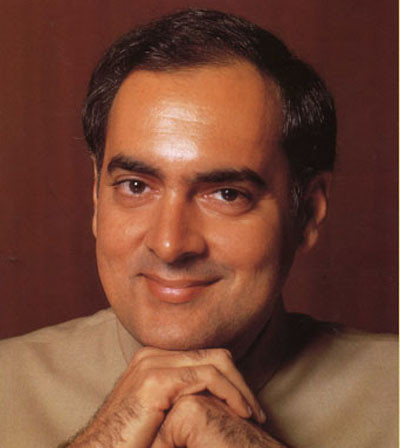
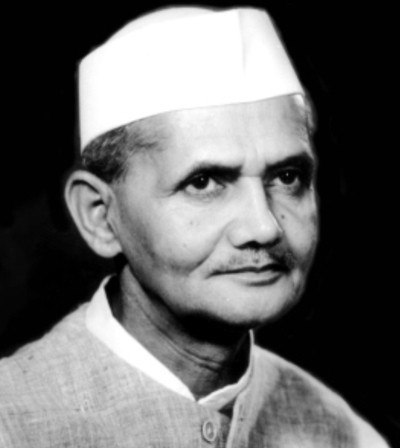

PRAVIN K. BAMBHANIYA
13 years ago
Sir, Aap Ki Aawaz Har Bhartiya Ki Dim Mein Beh Rahi Hain, Aap Gaye Nahi Ho
Sir, Aap Ki Aawaz Har Bhartiya Ki Dim Mein Beh Rahi Hain, Aap Gaye Nahi Ho
Bonny Bhalla
13 years ago
Rakesh Soni
14 years ago
JAYENDRA PATEL_JP
14 years ago
Mohan Verma
14 years ago